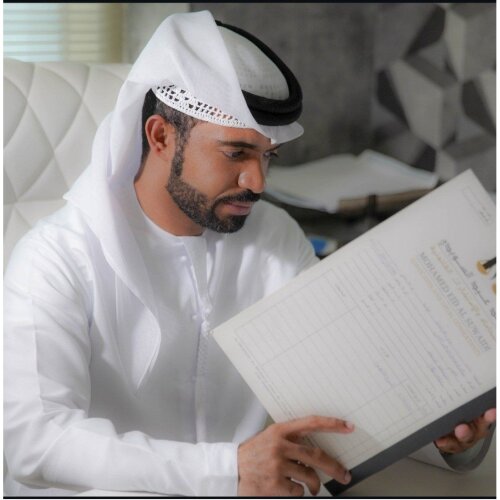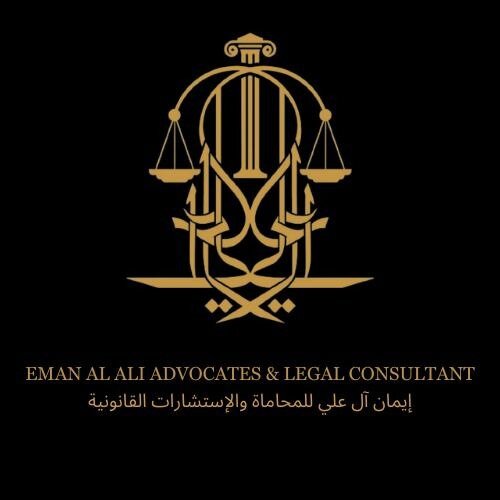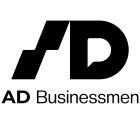Best FDA Law Lawyers in Dubai
Share your needs with us, get contacted by law firms.
Free. Takes 2 min.
List of the best lawyers in Dubai, United Arab Emirates

Mohamed Eid Al Suwaidi Advocates & Legal Consultants
30 minutes Free ConsultationAbout FDA Law in Dubai, United Arab Emirates
FDA Law in Dubai refers to the various local regulations and guidelines that govern food, drugs, medical devices, and cosmetics to ensure public health and consumer safety. While the United Arab Emirates does not operate under the United States Food and Drug Administration (FDA), it has established its own comprehensive regulatory framework to oversee the safety, quality, and efficacy of products entering or circulating within Dubai. These laws are enforced by several governmental bodies, with the Ministry of Health and Prevention (MOHAP), Dubai Municipality, and the Dubai Health Authority (DHA) playing key roles. The regulations encompass product registration, market authorization, labeling, advertising, importation, and post-market surveillance to uphold public health standards.
Why You May Need a Lawyer
Navigating FDA Law in Dubai can be complex due to the multifaceted nature of regulations affecting food, pharmaceuticals, medical devices, and cosmetics. You may need a lawyer if you are:
- Importing, exporting, or distributing regulated products
- Establishing a business in the healthcare, food, or pharmaceutical sector
- Seeking product registration or market approval
- Facing product recalls, compliance inspections, or regulatory investigations
- Dealing with product liability claims or consumer disputes
- Ensuring advertising and labeling compliance
- Resolving customs or importation issues related to FDA-regulated products
- Responding to regulatory enforcement actions or penalties
A qualified legal professional can help you understand your obligations, ensure compliance, mitigate risks, respond to regulatory challenges, and represent you in case of legal disputes with authorities or consumers.
Local Laws Overview
Key aspects of local laws in Dubai relevant to FDA-type regulations include:
- Product Registration: All food, drugs, medical devices, and cosmetics must be registered with the relevant government authority before being sold or marketed in Dubai.
- Importation Controls: Strict controls govern the import of FDA-regulated products, requiring valid permits, certificates, and sometimes pre-market approval.
- Labeling Requirements: Comprehensive guidelines dictate the content and format of packaging and labeling, including mandatory Arabic translations, ingredients, and safety information.
- Advertising Restrictions: Marketing materials are subject to pre-approval and must avoid misleading claims or unsubstantiated health benefits.
- Quality and Safety Standards: All products must comply with local, Gulf Cooperation Council (GCC), and international quality and safety benchmarks established by authorities like ESMA (Emirates Authority for Standardization and Metrology).
- Inspections and Enforcement: Regulatory bodies conduct routine and unannounced inspections to enforce compliance, with powers to recall products, impose fines, or initiate legal action.
- Product Recalls: Companies are required to report safety issues and cooperate fully in product recall procedures initiated by authorities.
Failure to adhere to these laws can result in severe penalties, including fines, license suspension, criminal charges, or business closure.
Frequently Asked Questions
What is required to register a food, drug, or cosmetic product in Dubai?
You must submit an application with supporting documents such as ingredient lists, safety data, certificates of analysis, and labeling samples to the relevant authority for review and approval before marketing your product.
Who oversees FDA-related regulations in Dubai?
The Ministry of Health and Prevention (MOHAP), Dubai Municipality, and Dubai Health Authority (DHA) are the primary regulators, each with designated roles for specific product categories.
Are there restrictions on importing FDA-regulated products?
Yes, imports require permits, adherence to local standards, and completion of the relevant registration process. Products must also pass customs inspections and sometimes laboratory testing.
Can I market health products online in Dubai?
Yes, but all products must comply with registration, labeling, and advertising regulations, and you may require special e-commerce permits.
Is Arabic labeling mandatory for products sold in Dubai?
Yes, essential information such as product name, ingredients, usage instructions, and warnings must be provided in Arabic.
What happens in the event of a product recall?
Companies must immediately notify authorities, cooperate with recall procedures, inform consumers, and ensure non-compliant products are withdrawn from the market.
How are quality and safety standards enforced?
Authorities conduct inspections, review documentation, perform product testing, and investigate complaints to enforce quality and safety laws.
What are the penalties for non-compliance?
Penalties range from fines and product seizures to license revocation, business closure, and legal prosecution in serious cases.
Do dietary supplements require special approval?
Yes, dietary supplements are classified as regulated products and must undergo a registration and evaluation process before market entry.
How can a lawyer help with FDA Law matters?
A lawyer can assist with product registration, compliance audits, documentation, responding to enforcement actions, appealing regulatory decisions, and representing you in court if necessary.
Additional Resources
If you are seeking further guidance or official information, the following organizations can be helpful:
- Ministry of Health and Prevention (MOHAP)
- Dubai Municipality - Food Safety Department
- Dubai Health Authority (DHA)
- Emirates Authority for Standardization and Metrology (ESMA)
- Dubai Customs
- Dubai Economic Department (DED)
- Local law firms with expertise in regulatory compliance and health law
Next Steps
If you require legal assistance in FDA Law matters in Dubai, start by gathering all relevant documents, such as product registrations, permits, inspection reports, and correspondence with authorities. Consider consulting a qualified local lawyer experienced in regulatory or health law to assess your situation, review your obligations, and develop a compliance strategy. Your lawyer can also represent you in applications, negotiations, and disputes with government bodies or third parties. Prompt professional advice greatly reduces the risks of non-compliance and helps protect your business in Dubai's rapidly evolving regulatory environment.
Lawzana helps you find the best lawyers and law firms in Dubai through a curated and pre-screened list of qualified legal professionals. Our platform offers rankings and detailed profiles of attorneys and law firms, allowing you to compare based on practice areas, including FDA Law, experience, and client feedback.
Each profile includes a description of the firm's areas of practice, client reviews, team members and partners, year of establishment, spoken languages, office locations, contact information, social media presence, and any published articles or resources. Most firms on our platform speak English and are experienced in both local and international legal matters.
Get a quote from top-rated law firms in Dubai, United Arab Emirates — quickly, securely, and without unnecessary hassle.
Disclaimer:
The information provided on this page is for general informational purposes only and does not constitute legal advice. While we strive to ensure the accuracy and relevance of the content, legal information may change over time, and interpretations of the law can vary. You should always consult with a qualified legal professional for advice specific to your situation.
We disclaim all liability for actions taken or not taken based on the content of this page. If you believe any information is incorrect or outdated, please contact us, and we will review and update it where appropriate.
















